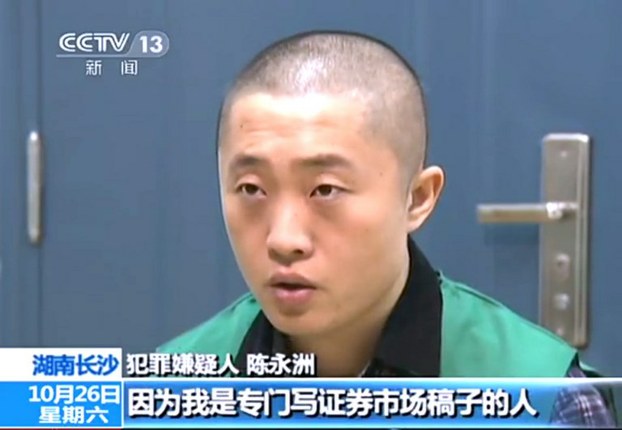




Authorities in Beijing have arrested two newspaper editors for receiving bribes, in a case which analysts said highlights widespread corruption in the Chinese media.
Xiong Xiong, editor of the Beijing Youth Daily's "Digital Age" supplement, and Yang Kairan, editor of the Jinghua Times' auto section, are being investigated for receiving bribes, according to local media reports.
Reports of the amounts involved ranged from "tens of thousands of yuan" (thousands of U.S. dollars) to "hundreds of thousands" (tens of thousands of U.S. dollars.)
A Beijing media worker who gave only his surname Wang said that bribes of 1 million yuan (U.S. $165,000) aren't unusual for editors of supplements, however.
"A million yuan isn't much, not if you're the editor of a section or a supplement," Wang said.
"I'm sure there's a story [behind these arrests]. I think there must be another story in the background of these two arrests," he said.
"Perhaps they were reported by someone."
Wang, who has worked in China's state-controlled media for more than 20 years, said reports of bribe-taking by journalists are "extremely common," to the extent that it is now part of normal working practice for journalists.
"Anyone who wants to get onto Beijing TV, and in particular CCTV, will have to spend very large sums," Wang said. "Small amounts won't do it."
"This is something everybody knows," he said.
Public relations
Wang said the charges of bribery suggested that Xiong and Yang stood accused of receiving money from private enterprises, possibly PR companies.
A Guangdong-based online editor who gave only his surname Dong said public relations in China is a rapidly growing business, as large companies increasingly hire firms to get as much coverage as possible for their brands; often regardless of the means.
He said big-name brands are particularly concerned about negative news affecting their reputation online.
"Whether it's companies or local governments concerned about negative coverage online ... the public relations companies can help them have it deleted," Dong said.
"They have strong links with the Internet police as well as all the major news portals and websites, and they can get these articles deleted," he added.
Dong, who has close ties with China's official media, said sponsored news items were also extremely common, providing a lucrative income for reporters and editors alike.
"This is part of the profession," Dong said. "The companies also budget for it."
He said any negative stories affecting companies could be deleted for the right price.
"Even if these are normal complaints by consumers, they can still be deleted," Dong said. "Those in charge hang onto power, and those further down make a bit of extra cash; this is very normal."
"Actually it's all a product of the [ruling] Chinese Communist Party."
Gray economy
China’s hidden household income—otherwise known as its "gray economy"—has topped 6.2 trillion yuan (U.S. $1 trillion) or about 12 percent of the world's most populous nation's economic output, according to a state-backed report released in September.
The state-backed China Reform Foundation report said that most undeclared income in the Chinese economy is undocumented, and that rich city-dwellers have an income around 21 times that of the poorest Chinese, compared with the officially reported factor of 8.6.
The report's authors concluded that the difference must be explained by hidden income, or the "gray economy," which can range from bribery and unrecorded transactions to "gifts" given to officials and teachers on important occasions.
Widespread mismanagement of public funds, a loose monetary policy and lax enforcement of regulations were to blame for the growth of China's hidden economy, the report said.
It also cited state-sponsored monopolies, rampant public sector corruption, and a lack of effective public oversight as contributing to the problem.
Reported by Shi Shan for RFA's Mandarin Service. Translated and written in English by Luisetta Mudie.